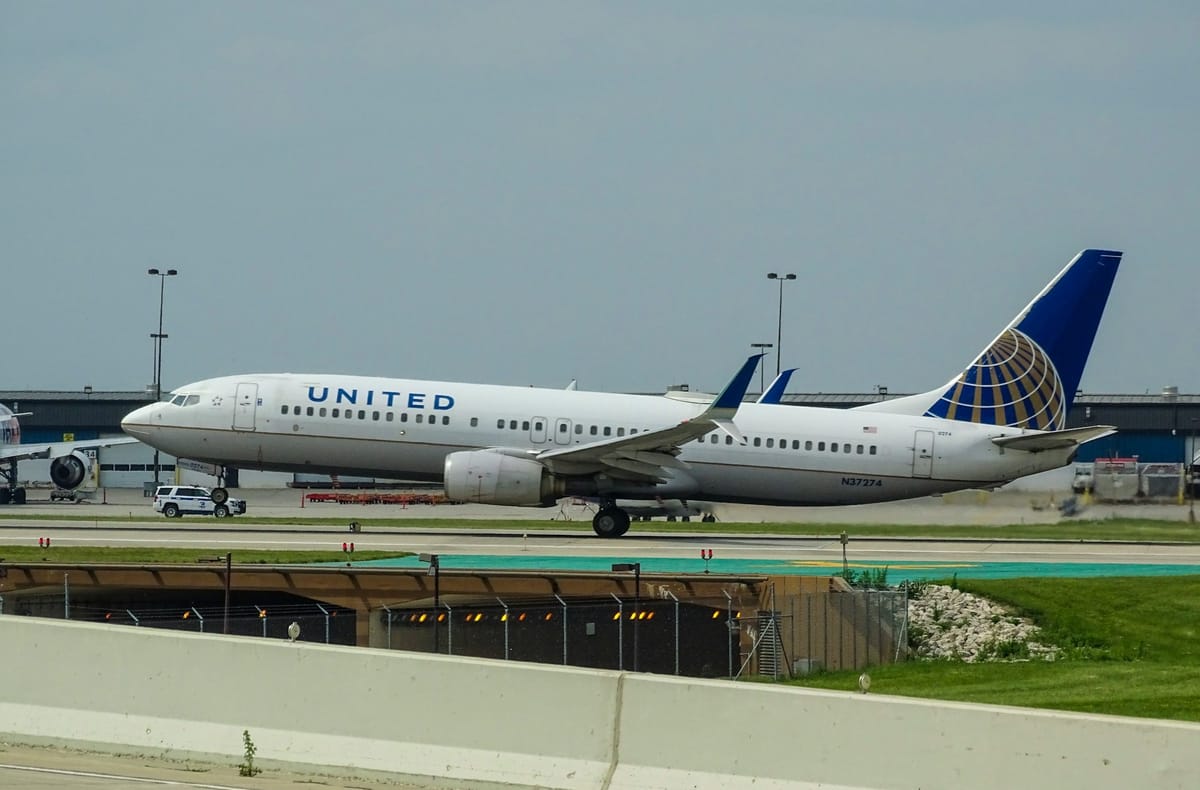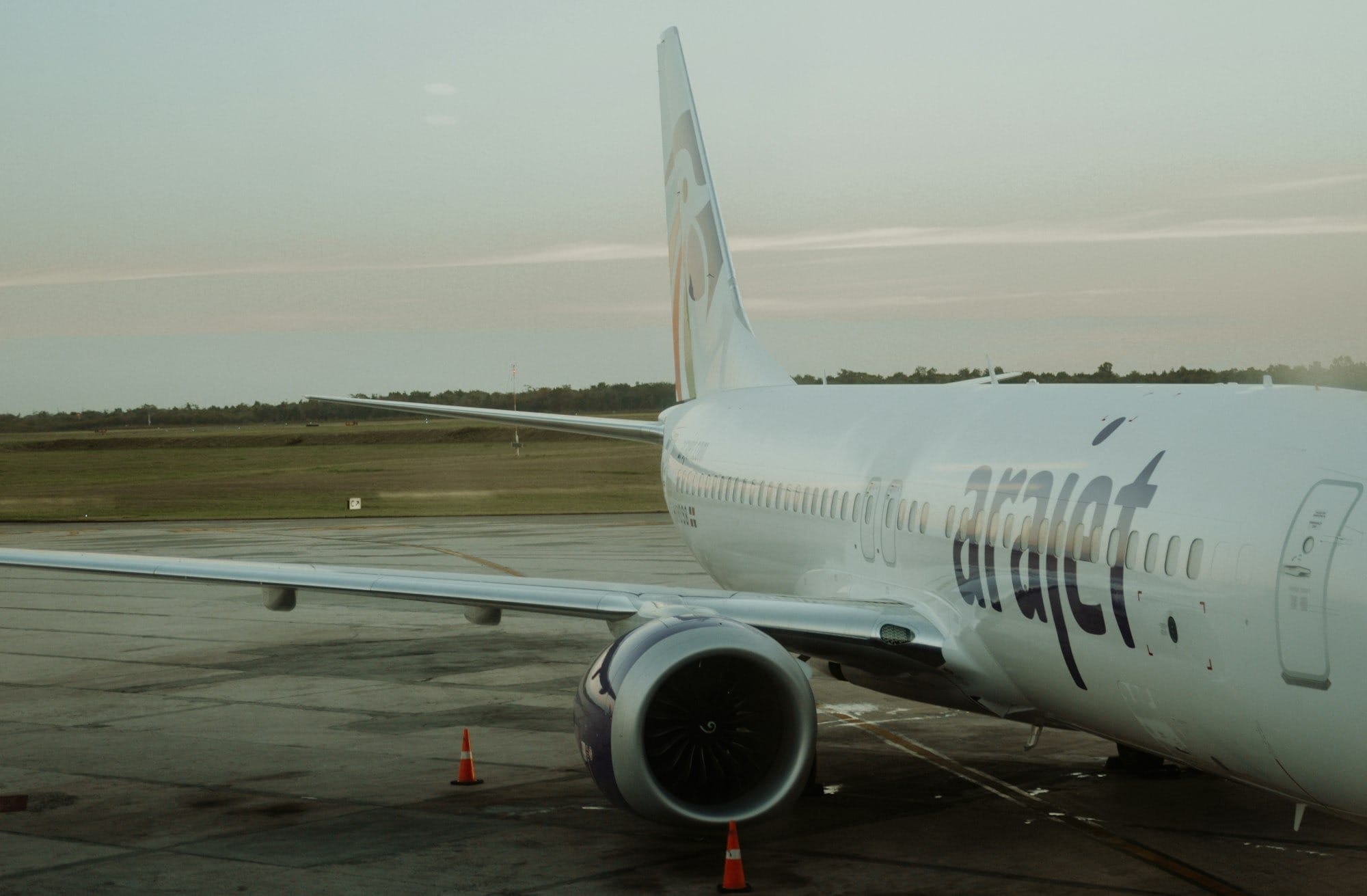United Airlines Removes Max 10 from Fleet Plan Over Expected Delay
United Airlines has removed the Boeing 737 Max 10 from its fleet plan due to expected delays in certification and delivery. This decision signals growing frustration with Boeing's ongoing quality control issues and production delays.

United Airlines Removes Max 10 from Fleet Plan Over Expected Delay
Key Takeaways
- United Airlines removes Boeing 737 Max 10 from its fleet plan.
- Decision driven by delays in certification and delivery.
- Impact on United's growth strategy and broader aviation industry.
Introduction
United Airlines has removed the Boeing 737 Max 10 from its fleet plan due to expected delays in certification and delivery. This decision signals growing frustration with Boeing's ongoing quality control issues and production delays.
Recent Incidents and Impact
This decision follows recent problems with Boeing aircraft, particularly the door plug incident on an Alaska Airlines 737 Max 9 flight in January 2024. United Airlines, one of Boeing's largest customers, had originally planned to receive a significant number of Max 10 aircraft in the coming years. According to the airline's recent SEC filing, United was set to receive 80 Max 10s in 2024 alone, with more than half of its total Max 10 order of 277 planes expected to be delivered between 2024 and 2025. However, the airline has now adjusted its expectations, stating that it does not anticipate receiving any Max 10s in the near future.
CEO's Concerns and Future Plans
United Airlines CEO Scott Kirby expressed concerns about Boeing's ongoing issues, stating that the company would be forced to consider future plans without the Max 10. While United has not officially canceled its entire Max 10 order, Kirby emphasized the need to plan for the unknown given the uncertainty surrounding the aircraft's certification and delivery timeline.
Broader Implications for Boeing
The decision to remove the Max 10 from its fleet plan is a significant blow to Boeing, which has been struggling to regain trust and stability following a series of setbacks. The Max 10, the largest variant in the 737 Max family, has yet to be certified by the Federal Aviation Administration (FAA). The recent grounding of Max 9 aircraft due to the door plug incident has further complicated matters, potentially impacting the certification process for the Max 10.
CFO's Perspective and Alternative Plans
United Airlines CFO Michael Leskinen described the Max 9 grounding as "the straw that broke the camel's back" in terms of believing the Max 10 would deliver on schedule. The airline is now working on alternative plans to address its growth strategy without relying on the Max 10. The impact of this decision extends beyond just the Max 10. United Airlines has also revised its expectations for other Boeing aircraft deliveries. For 2024, the airline now expects to receive 63 Boeing planes instead of the originally planned 85. This includes seven 787 Dreamliners, 37 Max 8s, and 19 Max 9s.
Exploring Alternatives with Airbus
To compensate for the potential gap in its fleet plan, United is considering various options. The airline has more than 200 firm commitments with Airbus, including orders for A321neo aircraft. United recently began operations with its first Airbus A321neo twinjets, which are considered direct competitors to the Max 10.
Impact on Growth Trajectory
The removal of the Max 10 from United's fleet plan is expected to impact the airline's growth trajectory. Leskinen noted that United's capacity growth is likely to slow in the coming years compared to previous assumptions. This adjustment highlights the broader implications of Boeing's challenges on the aviation industry and individual carriers' strategic planning.
Industry-Wide Concerns
Boeing's issues have not only affected United Airlines but have also raised concerns among other major carriers. Delta Air Lines has also expressed doubts about the timely delivery of its Max 10 orders. The ongoing scrutiny of Boeing's production processes and quality control measures has led to increased pressure from airlines and regulators alike.
Commitment to Safety and Reliability
As United Airlines navigates this change in its fleet strategy, the company remains committed to ensuring the safety and reliability of its aircraft. The airline continues to work closely with Boeing and regulatory authorities to address concerns and maintain the highest standards of safety for its passengers and crew.
Conclusion
United Airlines' decision to remove the Boeing 737 Max 10 from its fleet plan reflects the growing uncertainty surrounding Boeing's ability to deliver aircraft on schedule and meet quality standards. This move underscores the challenges facing Boeing as it works to regain the trust of airlines and regulators. As the aviation industry continues to evolve, airlines like United are being forced to adapt their strategies and consider alternative options to meet their growth and operational needs.
Summary
United Airlines has decided to remove the Boeing 737 Max 10 from its fleet plan due to delays in certification and delivery. This decision is influenced by recent incidents and ongoing quality control issues at Boeing. United's CEO and CFO have expressed concerns and are exploring alternative plans, including commitments with Airbus. The move is expected to impact United's growth trajectory and highlights broader industry challenges.
Q&A Section
Q: Why did United Airlines remove the Boeing 737 Max 10 from its fleet plan? A: United Airlines removed the Boeing 737 Max 10 from its fleet plan due to expected delays in certification and delivery, as well as ongoing quality control issues at Boeing.
Q: How many Max 10 aircraft was United Airlines originally expecting to receive? A: United Airlines was originally expecting to receive 80 Max 10 aircraft in 2024 alone, with more than half of its total Max 10 order of 277 planes expected to be delivered between 2024 and 2025.
Q: What alternative plans is United Airlines considering? A: United Airlines is considering various options, including more than 200 firm commitments with Airbus, such as orders for A321neo aircraft.
Q: How will this decision impact United Airlines' growth trajectory? A: The removal of the Max 10 from United's fleet plan is expected to slow the airline's capacity growth in the coming years compared to previous assumptions.
Q: What broader implications does this decision have for Boeing? A: This decision underscores the challenges facing Boeing as it works to regain the trust of airlines and regulators, and highlights the broader implications of Boeing's challenges on the aviation industry and individual carriers' strategic planning.








